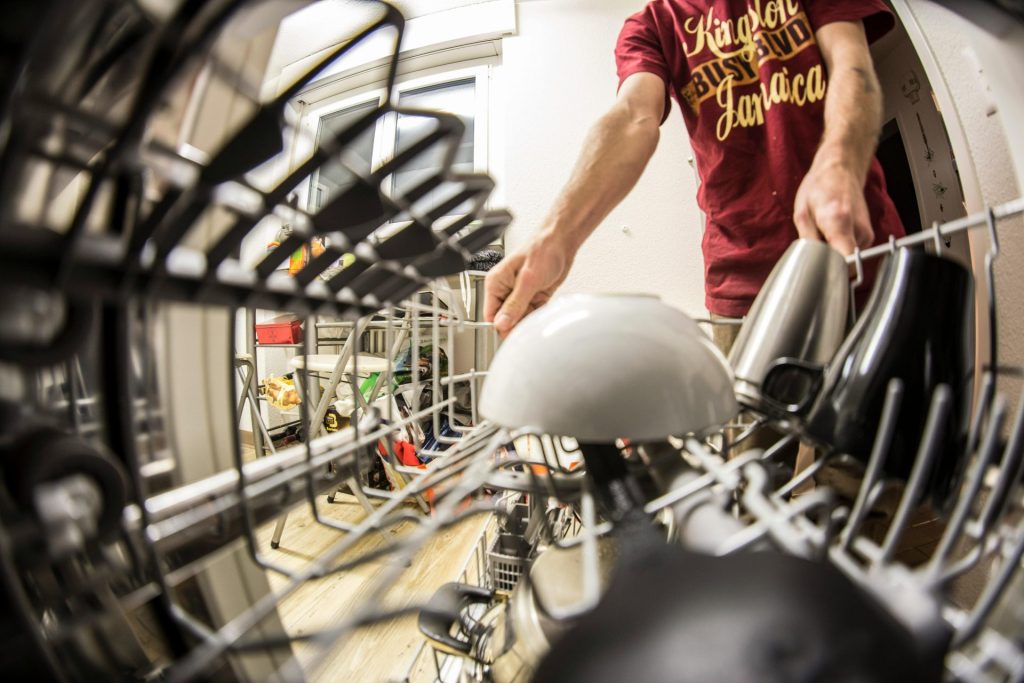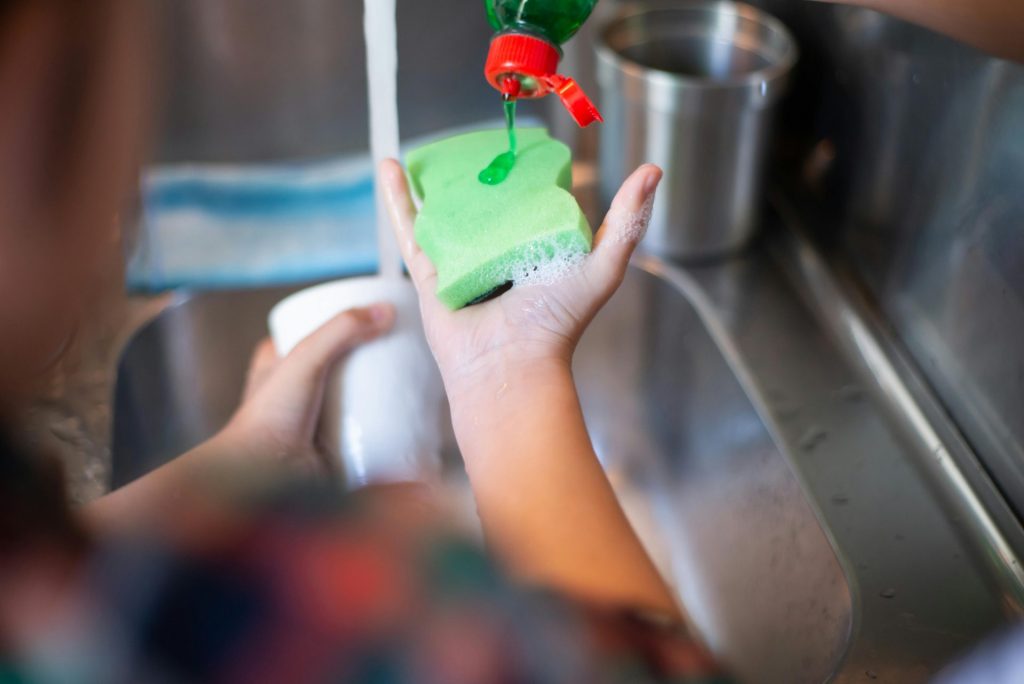
What is sustainable living? How Your Choices Shape a Sustainable Present and Future
By embracing sustainable living, we adopt practices that contribute to the well-being of the environment, society, and economy.

Dishwashing is an everyday activity. Even small changes in our dishwashing habits can have a meaningful impact on our overall sustainability efforts.
By making small changes in our habits, we can save significant amounts of energy and water and ditch plenty of plastics from our shopping lists.
Sustainable dishwashing isn't just about environmental benefits; it's also about fostering a new mindset with responsibility towards the resources we use daily. It encourages us to consider the broader implications of our actions and empowers us to make conscious choices that align with our values of sustainability and conservation.
In essence, transforming our everyday dishwashing routine into a more sustainable practice isn't just about cleaner dishes; it's about making a positive difference in the world, one small change at a time.
Dishwashing is an essential household chore, but have you ever considered its environmental impact? From water and energy consumption to cleaning products, our dishwashing habits can have a significant ecological footprint. Understanding these impacts is the first step towards adopting more sustainable practices.
One of the primary environmental concerns associated with dishwashing is water consumption. Traditional hand washing can use up to 27 gallons of water per load, while modern dishwashers use as little as 3 gallons for a full load. Why are dishwashers saving more water than us? We need to change our routines and develop a new resource-preserving mindset.
The energy used to heat water and power dishwashers also influences their environmental impact. Energy-efficient dishwashers can reduce energy consumption by up to 50% compared to older models. Additionally, cold water use and avoiding heated drying cycles can minimize energy usage during dishwashing. While hand washing dishes, we should consider using less hot water.
The cleaning products we use for dishwashing can also impact the environment. Many conventional dish soaps and detergents contain harmful chemicals that can pollute waterways and harm aquatic life. Choose biodegradable, phosphate-free, and eco-friendly cleaning products that can help reduce environmental impact while achieving clean dishes.
Lastly, the waste generated from dishwashing, such as plastic scrubbing pads and single-use sponges, contributes to landfill pollution. The manufacturing and disposal of plastic items contribute to greenhouse gas emissions, exacerbating climate change. As awareness of these environmental challenges increases, there is a consensus on the pressing need to minimize our use of plastics and embrace sustainable alternatives to safeguard our planet for future generations.
Sustainable dishwashing refers to practices and products that minimize environmental impact while effectively cleaning dishes. Also, it should cost less than conventional dishwashing practices.

Photo by cottonbro studio: https://www.pexels.com/photo/industrious-young-girl-cleaning-the-dishes-5990716/
Here are some aspects of sustainable dishwashing:
Incorporating these sustainable practices into your dishwashing routine can help minimize our environmental footprint while maintaining clean and sanitary dishes. It's a small but impactful step towards living a more sustainable lifestyle.
What is more energy and water-efficient when we wash the dishes in the sink or the dishwasher?

Photo by Wendelin Jacober: https://www.pexels.com/photo/fish-eye-photography-of-man-pulling-the-dishwasher-rack-1447956/
Scientific studies try to answer that question.
For example, the study observed the dishwashing habits of consumers in the UK (1). Scientists examined individual attitudes, water and energy consumption, time spent, and cleaning performance. This study compared manual dishwashing with automatic dishwashers, recruiting participants from all geographic regions of the UK to form a representative sample of the population.
Each of the 150 participants washed a load of dirty tableware. Additionally, they tested the best-selling dishwasher in the UK in 2007 under the same conditions as the consumer trial.
The findings revealed that on average:
Another similar study offers insights into global manual dishwashing behaviors, focusing on individual attitudes, water and energy usage, and cleaning performance (2).
The study also compared manual dishwashing with automatic dishwashers. 289 participants from 29 countries washed the same amount of dishes.
To compare manual and automatic dishwashing, country-specific dishwasher models were tested alongside three programs using the same soiled dish samples.
The results revealed that:
The study concluded that automatic dishwashing outperformed manual dishwashing in performance and resource efficiency. It also highlighted that washing dishes under running tap water is the most water-intensive manual dishwashing method observed. Despite the advantages of automatic dishwashing, there remains a significant lack of consumer awareness regarding its benefits compared to the manual process.

Photo by Tima Miroshnichenko: https://www.pexels.com/photo/woman-in-black-long-sleeve-shirt-washing-dishes-6195207/
Let's observe the results of another study. The author started with some research questions and found answers through the study (3).
Automatic dishwashers are becoming more eco-friendly due to improved water and energy efficiency. However, focusing only on water and energy may lead to problems with material use. Good laws can help make sure we move towards sustainability without loopholes. Technology like M2M (machine-to-machine communication) can help manufacturers and consumers work better together. Surprisingly, dishwashers meant to clean can sometimes cause health issues due to design flaws.
Switching from hand-washing to using automatic dishwashers might seem necessary for city residents. Yet, some studies suggest manual washing might still be a good option. Sustainability needs a balance between producers and consumers. Over the past 70 years, dishwashers have become "smarter" and more efficient. However, they face regulations, technology, economy, society, and environmental challenges.
Science says that dishwashers are more sustainable in doing dishes than us.
Yet, when it comes to dishwashing, our habits play a significant role in determining the sustainability of the process.
How much water and soap do we use?
Do we leave the running water for the whole time?
What kind of dish soap do we use?
Do we clean and maintain our dishwashing tools to ensure they function efficiently?
Our approach to cleaning can make a substantial difference in reducing waste and conserving resources. Sustainable manual dishwashing isn't just about choosing eco-friendly products; it's about adopting practices prioritizing efficiency.

Photo by Kampus Production: https://www.pexels.com/photo/a-person-pouring-liquid-soap-on-a-sponge-7492919/

By embracing sustainable living, we adopt practices that contribute to the well-being of the environment, society, and economy.

The idea of a sustainable diet was established in 2010.

A sustainable diet is considered to be a diet that resembles a nutritionally healthy diet.

Sustainability goes beyond admiration; it is a commitment to maintaining the delicate balance between our species and the planet.

Several scientists are “defending” meat consumption, replying that red meat is the source of essential nutrients.
Welcome to Sustainable Living by Science. With our scientific mindset, we are exploring how to nurture our well-being while caring for the environment. We are sharing the meaning of sustainability through evidence-based practices. Join us on this journey towards a greener, healthier future where science guides us to make the best choices for ourselves, the planet, and others.
All content is © 2024 by Sustainable Living by Science. All rights reserved.